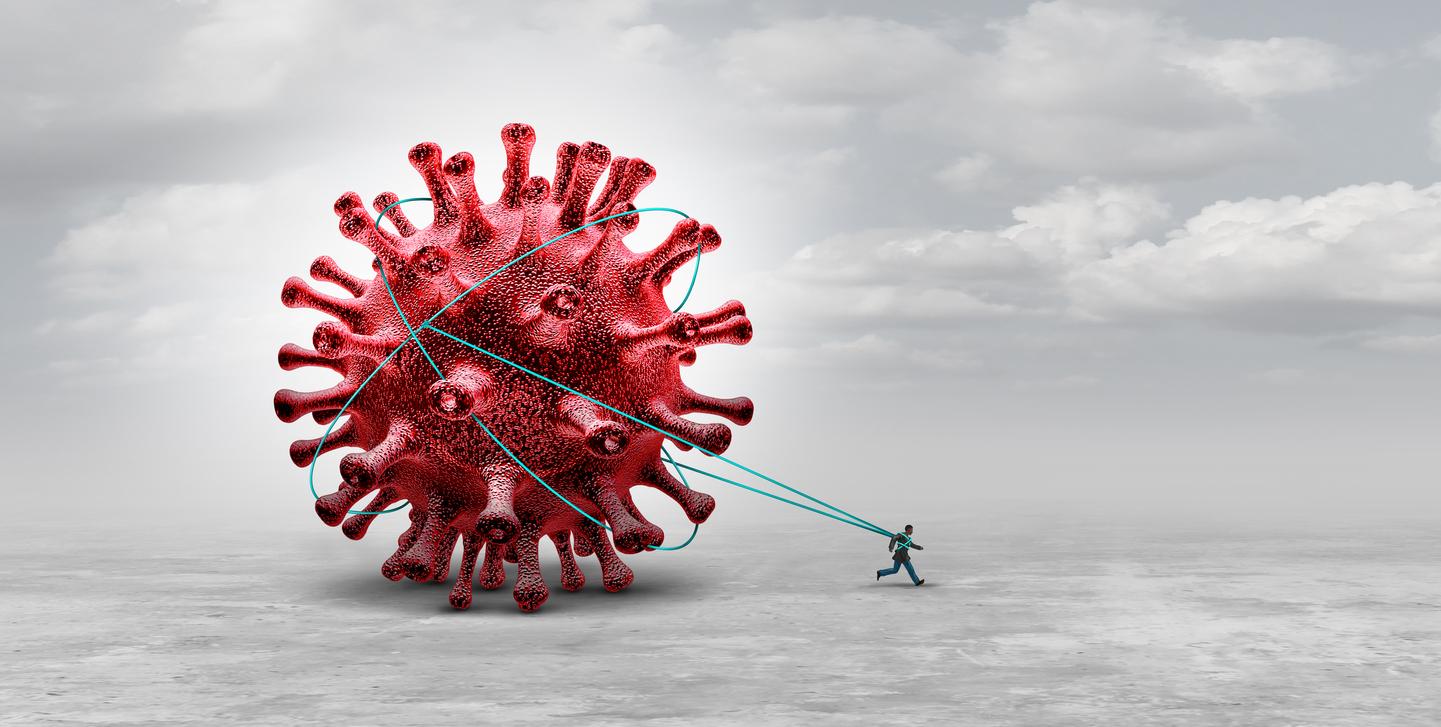It is a paving stone in the pond. In a video uploaded this April 14, 2020, Pr. Didier Raoult, director of the IHU Méditerranée Infection and defender of chloroquine treatment affirms that the Covid-19 epidemic is “gradually disappearing“and that it is possible that”the epidemic disappears in the spring and that within a few weeks, there will be no more cases“.
Indeed: the specialist notes that “there is a very significant decrease in the number of cases detected and even more significant in people who come to be detected while they are asymptomatic“and ensures that the return of sunny days is involved in this good news -“for reasons which are strange, but which we are used to seeing for most respiratory viral diseases“.
This statement relaunches a debate created in February 2020 by the President of the United States: in a tweet, Donald Trump affirmed that the arrival of spring would sign the end of the coronavirus epidemic, which (remember) manifests itself by respiratory problems and fever. While acknowledging that the situation was “not easy“,” Donald J. Trump “was confident in China’s ability to eradicate the virus”especially thanks to the warming of temperatures, hoping that they weaken the virus and make it disappear“.
Will the coronavirus really go away with the heat of summer?
Nothing is less sure. At present, scientists are not entirely sure whether the Sars-Cov-2 coronavirus is sensitive to seasonal changes – and the debate rages on.
Supporter of the theory according to which the coronavirus could calm down with the summer, Étienne Decroly, research director at the CNRS questioned by our colleagues of LCI, note that “this family of viruses is seasonal and therefore sensitive to climatic conditions. When the weather is hot and dry, this induces dehydration of the viral particles, which decreases the infectivity of the virus. Currently, when we look at the contaminations map, we can see that there are more cases in the northern hemisphere than in the south, where it is warmer. A climate effect likely plays a role in the spread of the virus“.
In addition, for Dr. Mohammad Sajadi, virologist at the University of Maryland (United States) interviewed by our colleagues from Science and Life, “the droplets (in the air), possibly contaminated, evaporate more quickly when it is hot, and are therefore contaminating for a shorter time (…) Regarding respiratory infections, the latest work shows that they are clearly favored in conditions of dry cold.“
But on the other hand, the Prof. David Heymann, specialist in infectious diseases at the London School of Hygiene and Tropical Medicine (Great Britain) recalls that “coronaviruses can most likely spread thanks to high temperatures“like the MERS coronavirus that appeared in Saudi Arabia in August 2013.
The bottom line is (of course) that the Sars-Cov-2 coronavirus remains, for the moment, an unknown. So for the Prof. William Schaffner, infectious disease specialist at Vanderbilt University (USA): “the coronavirus covid-19 is a new virus that we still know very little about: we can not predict anything, we can not say anything“. Conclusion: let’s not rejoice too quickly …
Read also :
- Coronavirus or not? This questionnaire advises you
- How to make your homemade hydroalcoholic gel?
- What is the profile of patients affected by the coronavirus?
- Fake news: no, fennel is not a cure for the Chinese coronavirus!
- Coronavirus epidemic: stage 3, what measures?
- Coronavirus and healthy carriers: contagious even without symptoms?
- Coronavirus: how long does a patient remain contagious?
- Coronavirus: what are the promising treatments
- Coronavirus vaccine: when will it be available?


















